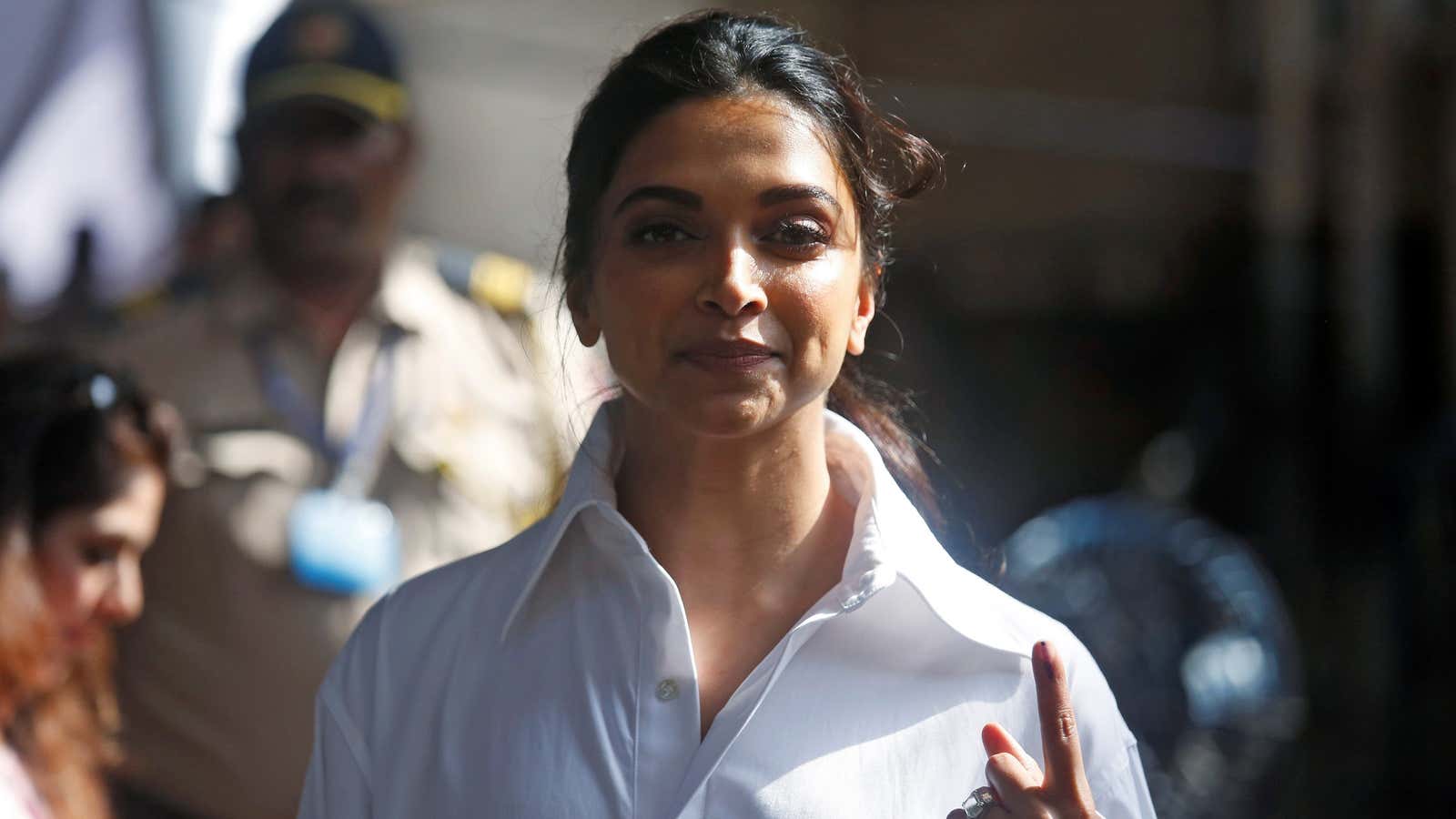Deepika Padukone, one of India’s highest-paid Bollywood actors, took a brief but rare political stand today (Jan. 7).
She arrived at New Delhi’s Jawaharlal Nehru University in support of students protesting the recent violence inside the campus, allegedly perpetrated by those belonging to outfits connected to prime minister Narendra Modi’s Bharatiya Janata Party (BJP). Her move is likely to bolster the students’ mood as much as that of the several hundred protesters raising their voice in their support across India.
The actor has largely stayed away from political debates till now, much like many of her other mainstream co-stars, who have often drawn flak for not speaking out on political issues—not the least on one that affects them the most, freedom of speech.
What made for stronger optics today is the fact that Padukone reportedly arrived with young Leftist leader Kanhaiya Kumar, a bitter critic of Modi’s government. Kumar himself was the centre of a major controversy at JNU in 2016, since when the university has got into regular face-offs with authorities. Currently, students here are protesting against what they call arbitrary and abrupt hikes in fees and other expenses in the campus as decreed by university authorities.
On Jan. 5 night, violence broke out at JNU, allegedly perpetrated by members of the Akhil Bharatiya Vidyarthi Parishad, the student arm of the Rashtriya Swayamsevak Sangh, to which the BJP is ideologically affiliated.
Bollywood’s voice
A number of Bollywood celebrities have frequently made their views known on political issues and matters of public interest. Even with respect to the recent JNU fracas, several celebrities such as filmmakers Vishal Bharadwaj and Zoya Akhtar, and actors Taapsee Pannu, and Dia Mirza were seen at protest venues in the financial and Bollywood capital Mumbai, in support of the student victims.
Others like actor Swara Bhasker and filmmakers Hansal Mehta and Anurag Kashyap have also been vociferously opposing the Citizenship Amendment Act, enacted recently and viewed as biased against India’s Muslims.
While today Padukone did not offer any comments at JNU, her mere presence potentially bolsters the students’ mood.
Even when she was the target of a campaign in the run up to the release of her movie Padmaavat in 2018, she hadn’t said much. Back then, Hindu nationalist organisations had threatened violence against her and the makers of the film, alleging that it hurt their sentiments. The filmmakers then relented and changed the movie’s name, deleting scenes and modifying a song in which Padukone was originally seen baring her midriff.
However, ever since it was revealed that those who perpetrated the violence at JNU last weekend were also carrying acid, people have been calling out Padukone to speak up. Her film, Chhapaak, scheduled for release this month, is about the life of an acid-attack survivor. This may have been one of the reasons why Padukone stepped out of her comfort zone.
Kudos and brickbats
Padukone’s bold move to visit JNU has been lauded across the board, except by right-wing supporters.
Filmmaker Ashoke Pandit, an outspoken known Hindu nationalist supporter, raised concerns, too.
Both #ISupportDeepika and #BoycottChhapaak were top trends on Twitter in India, just hours after the actor’s visit to the campus.
Among those who applauded her gesture was Kiran Mazumdar-Shaw, chairman of Biocon.
However, it is too early to say if her stance will tilt the scales in Bollywood in favour of being more politically involved.
